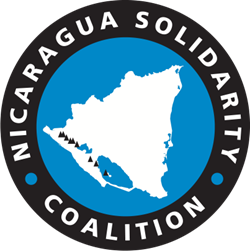SAFETY
Nicaragua is the safest country in Central America
Travel to Nicaragua
According to the United Nations, Nicaragua is the safest country in Central America. It has much to offer in natural beauty and tourist attractions at a reasonable cost. Nicaragua’s strength lies in community and family-based tourism – you will definitely have the opportunity to meet and get to know Nicaraguans and be able to travel with a light footprint.
Nearly one million foreigners visited Nicaragua in 2023! Travelers report feeling safe around the country and receiving a warm welcome from the people of Nicaragua. Violent crime in Nicaragua is low, and violent crime involving tourists is unheard of.
Access to quality health care is readily available – tourists can access Nicaragua’s free health care system if they become ill. Travel around the country via bus, car and taxi is quite safe and common. Travelers are cautioned to be wary of pickpockets on buses.
There are many opportunities to see Nicaragua, we encourage you to join one of the Nica Coalition’s delegations to the country!
Women & LGBTQ Travel
Nicaragua is safe and welcoming of all travelers. Women traveling alone and LGBTQ travelers report feeling safer in Nicaragua than in almost any other country, including the United States.
Policing
Since 2007, Nicaragua’s police have improved services to the public. There are nearly three times the number of police stations than there were at the start of the period, 3.5 times as many crime labs, the introduction of technology centers where population can quickly file and access police and accident reports, get their police record, renew driver’s licenses, etc.
Women
Women now make up 33% of Nicaragua's police force and there are 285 women’s police stations around the country. These are spaces where female officers attend women and children exclusively. Additionally, a woman can file a police report online from her phone, at a police station electronic kiosk, or by calling a free hotline.
Natural Disasters
Since 2007, the Sandinista government has promoted a system of proactive risk mitigation to prepare the population and government institutions for natural disasters such as hurricanes and earthquakes. To that end, it has trained 9,000 response brigades of 90,000 people and carries out four nation-wide drills annually.
Peace
Nicaragua is a country that prepares for peace, not for war. Because it is not at war, Nicaragua’s Army can dedicate itself to peacetime activities. It has a special brigade of forest protectors, dispatched to large reserve areas to stop illegal logging. The Army also has a special brigade of turtle protectors, assigned to beaches where sea turtles lay their eggs. To date they have protected 3.2 million turtle nests and released 15.7 million live baby turtles into the ocean.
In 2010 Nicaragua’s Army finished destroying 179,970 antipersonnel mines and 2,034,970 undetonated explosives. That year Nicaragua was declared free of landmines, making Central America the first region in the world free of antipersonnel mines.
Links
Articles
2024
Sandelin, Raul. “Today’s Nicaragua: “Jungle Outposts” or AM-PMs?” NicaNotes, 11 January 2024. National Public Radio (NPR), Eyder Peralta, Ayesha Rascoe, photographs, objective journalism
2023
Tourism in Nicaragua: A practical guide, 23 May 2023.
Adventure Tourism in Nicaragua, May 2023.
“Nicaraguan migrants at the U.S. border – are they being ‘pushed’ or ‘pulled?’” NicaNotes, 5 Jan. 2023 by John Perry. “repressive dictatorships,” economic opportunities, remittances, 2018 violent coup attempt, economic sanctions
2022
“Food Insecurity Increases in the US While it Declines in Nicaragua, Whose Socialist Government has Defied US Regime Change Designs.” Covert Action Magazine, 23 July 2022 by Nan McCurdy. Supplemental Nutrition Assistance Program (SNAP), export-based farms, 2018 US-backed coup attempt, monoculture, antibiotic overuse
Videos
Video & webinar resources on Safety in Nicaragua


